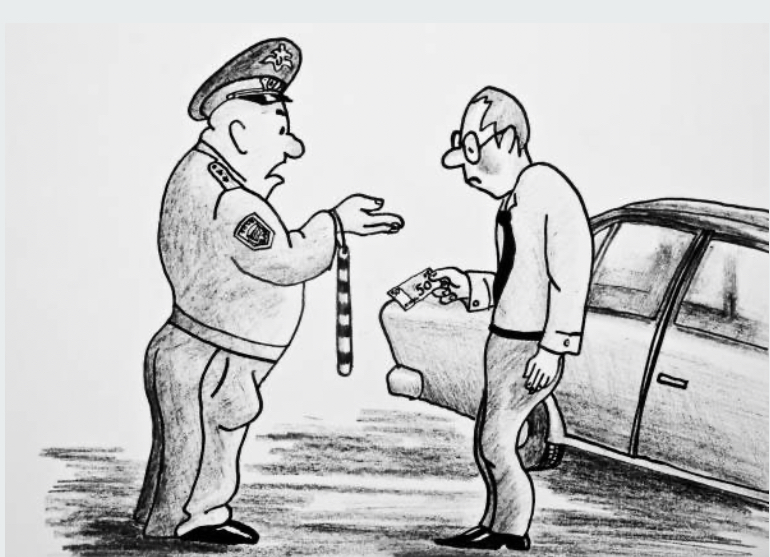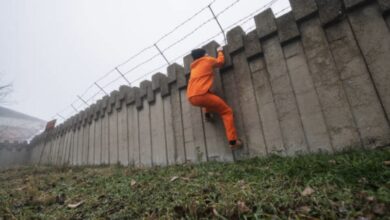Police Corruption in Nigeria


Introduction
Police corruption refers to the abuse of power and authority by police officers for personal gain or to protect illegal activities. It can include a wide range of unethical behaviors, such as bribery, extortion, falsifying evidence, and excessive use of force. This article explores the issue of police corruption, its consequences, and the urgent need to combat it
Police corruption undermines the integrity of law enforcement agencies, erodes public trust, and hampers the delivery of justice. It can have serious consequences for individuals and communities, including wrongful arrests, unfair treatment, and the perpetuation of criminal activities. Many observers attest to the fact that there is widespread corruption in the Nigeria Police, and this is the image of the public to the average policeman. It was also alleged that the guns the armed robbers were using were given to them by police officers for some amount of cash. This raised a lot of questions on the cases where police officers reported being attacked and ambushed by armed robbers who forcefully took the guns from them. This is what we call top secret.
Recently, a Nigerian man has narrated how some police officers stopped him along a highway in Nigeria on his way to the airport and extorted N80,000 after falsely accusing him of being a “Yahoo boy” (Internet fraudster) and a cultist. The man said the officers took advantage of the fact that he was anxious to meet up with his flight. The incident happened on 10 July 2023 in Rivers State, South-south Nigeria, while the man was on his way to Port Harcourt Airport. He said he missed his flight because of the incident.
A former Attorney-General and Minister of Justice observed that the Nigeria Police:
has become a comprehensive menace and a horror to the Nigerian public…every lorry that passes gives the police a sum of N20 (Twenty Naira) or something more, depending on the capricious mood of the police at work in the traffic.
Furthermore, in a recent report by Vanguard New, Pos (point of sale) operators alleged that they were arrested and extorted by officers at the station on the instruction of their female DPO after they were hauled to the station, detained, and thereafter forced to cough out N10,000 each before they were granted bail and their machines released.
Report on police brutality in Lagos,ThisDailylive.Com, On January 11, 2023, Reported that operatives of the Nigeria Police Force guarding the palace at Ilasan, Lekki Phase 1 were captured in the video assaulting a lady when she attempted to record them during a conversation with an Uber driver. The lady’s phone was seized and she was also arrested.
The above victim concluded that “No one can equate the high-handedness, insensitivity, extortionist tendencies, rudeness, and ignorance that some policemen on the road exhibit with the noble virtues of service and integrity.”
However, to be fair to the Nigeria Police, corruption is not a problem only related to them, it is both endemic and of epidemic proportions in the Nigerian society as a whole, and this has been reflected several times by Transparency International. Although police corruption is not necessarily the most harmful sort of corruption in Nigeria, the public seems inclined to view it as probably the ugliest. There seem to be more public criticisms of police corruption than any other form of corruption involving government officials. Why? The major reason is not far-fetched: the police are entrusted with the enforcement of the fundamental rules that guide the conduct of society, therefore a policeman’s violation of the law or his failure to enforce it, dishonors the law and the authority he represents.
The consequence is that the policeman is viewed to be dishonest, a factor that can destroy the respect and trust required from the community he serves.
The history of policing in most societies has been characterized and punctuated with malpractices and misconduct, therefore it is not an entirely new phenomenon for Nigerian society. In the United Kingdom, for example, the range of corrupt practices uncovered from the earliest days to date included the concealment of crimes, bribery, and fabrication or planting of evidence. The United States similarly experienced a range of police malpractices and misconduct. Despite the long history and universality of the phenomenon, disagreement still exists as to what type of behavior constitutes police corruption.
Corruption in general has been broadly defined by McMullan to include a range of activities, thus: a public official is corrupt if he accepts money or money’s worth for doing something he is under a duty to do anyway, that he is under a duty not to do, or to exercise a legitimate discretion for improper reasons.
Recognizing that the so-called ends of corrupt activities may not involve personal benefit or reward, but maybe for reasons of wider organizational or group interests as a whole, and that corruption could take place even when approved goals are being pursued, Punch broadens the definition as:
when an official receives or is promised a significant advantage or reward (personal, group, or organizational) for doing something that he is under a duty to do anyway, that he is under a duty not to do, for exercising a legitimate discretion for improper reasons, and for employing illegal means to achieve approved ends.
There are many competing definitions of police corruption. The term has been used to describe many activities such as bribery; violence and brutality; fabrication and destruction of evidence; and nepotism.% Dantzker views police corruption as the misuse of authority by the police acting officially to fulfill personal needs or wants. According to him, for a corrupt act to occur, three distinct elements must be present:
misuse of authority;
misuse of official capacity; and
misuse of personal attainment.
Seyed and Bruce defined police corruption as any illegal conduct or misconduct involving the use of occupational power for personal, group, or organizational gain. They however identified forms of police corruption including:
(a) Favouritism, which although is committed for a form of gain that is not materially tangible, nevertheless the actions do result in an identifiable benefit for the policeman in question. Acts of favoritism involve the misuse of police discretionary powers, such as allowing a person to avoid the consequences of illegal acts.
(b)Bribery is the most common example of police corruption. It involves the payment of money or some other material good in return for protection from law officers. Most of the acts of bribery are similar to acts of favoritism except that the former result in materially tangible gain. Extortion is said to be a form of bribery, but it involves a more aggressive pursuit of corrupt money, in which the police use their powers to pursue or create opportunities for corrupt gain.
(c) Kickbacks relate in general to the more administrative or bureaucratic sides of police work. They are usually in the form of giving favorable treatment in respect of the provision of legitimate service, and they take place in interactions with workers in areas related to police functions and responsibilities or with members of the general public.
(d) Diversion of Police Resources involves the use of police resources and powers for private purposes.
(e)Deceptive Practices involve the employment of ‘deceptive’, ‘illegitimate’, and ‘improper’ methods not for legitimate law enforcement ends, but to fraudulently enhance the performance of either the police officer concerned or others, or to gain some special bonus, etc.
In most academic literature, two key elements found in the various definitions are the misuse of the policeman’s professional role (authority or official position); and the receipt or expected receipt of material rewards or personal gain.
Causes of Police Corruption
In contemporary Nigeria, one can conclude based on media reports, public comments and opinions, incidents of police misconduct, and to a certain extent, government acceptance of the problem, that corruption in the Nigeria Police is pervasive; that it is a continuing problem; and that it is found at all levels and ranks of the Nigeria Police organization. What then are the causes of police corruption in Nigeria, or what factors influence the corruption? In general, there are many competing explanations for police corruption, including dishonest and faulty recruitment; faulty training and supervision; political influence; death of professional standards; societal demands for illegal services; poor welfare and administration; and socialization of recruits into corrupt practices.
The ‘Bad Eggs’ Theory
One of the most popular and traditional explanations of police corruption in Nigeria is based on the “bad eggs” theory. According to this theory, in every occupation, policing inclusive, there are bound to be some members who are willing to cut corners and commit dishonest or criminal acts in pursuit of some gain. The fault, it is argued, lies in personal character, thus:
The most fundamental method of maintaining integrity in law enforcement is through careful selection of personnel. All the selection techniques available…must be used, including comprehensive background investigations and reliable tests to determine attitude and emotional stability.
Research conducted by Boes and Chandler to measure police integrity, using personality measures to identify corruption-prone officers involving 878 officers (439 violators and 439 non-violators), showed that the violators had more difficulty getting along with others; had more delinquent histories; and more indications of maladjustment, immaturity, irresponsibility, and/or unreliability.
On the other hand, the non-violators tended to be more tolerant of others; willing and able to maintain long-term positive relationships with others; willing to accept responsibility and blame; and/or controlled by guilt and remorse.
The claim by the police hierarchy is usually that corruption is limited to a few “bad” policemen who do not represent the standard of the organization. The theory has been criticized at various times, and one such time is the observation made by Patrick Murphy concerning the US police in which he posited that:
The ‘rotten apple’ theory won’t work any longer. Corrupt police officers are not natural-born criminals, nor morally wicked men, constitutionally different from their honest colleagues. The task of corruption control is to examine… the organization, not just the individuals in it – because corrupt police are made, not born.?
The “bad eggs” or “rotten apples” assumption should be based on advanced societies, such as the US, where recruitment and selection criteria are rather strict, but in developing societies such as Nigeria, where recruitment is often influenced by a variety of factors that are based on sentiments, emotions, and personal interests, it is futile to advance the “bad eggs” theory, because the corrupt in the police organization is more than a few, they are indeed the majority.
However, the ‘bad eggs’ theory of police corruption has its usefulness to the extent that it highlights the reality that there are individuals in the police who would be more likely to engage in corrupt activities than others for a host of complex psychological and personal reasons.
Conclusion
Police corruption is a complex issue that has serious consequences for society. It is not a phenomenon that can be attributed to a single cause, but rather a combination of various factors that contribute to its existence. To effectively address police corruption, it is crucial to implement comprehensive reforms. This includes improving recruitment and training processes, enhancing transparency and accountability measures, and fostering a culture of integrity within law enforcement agencies.




